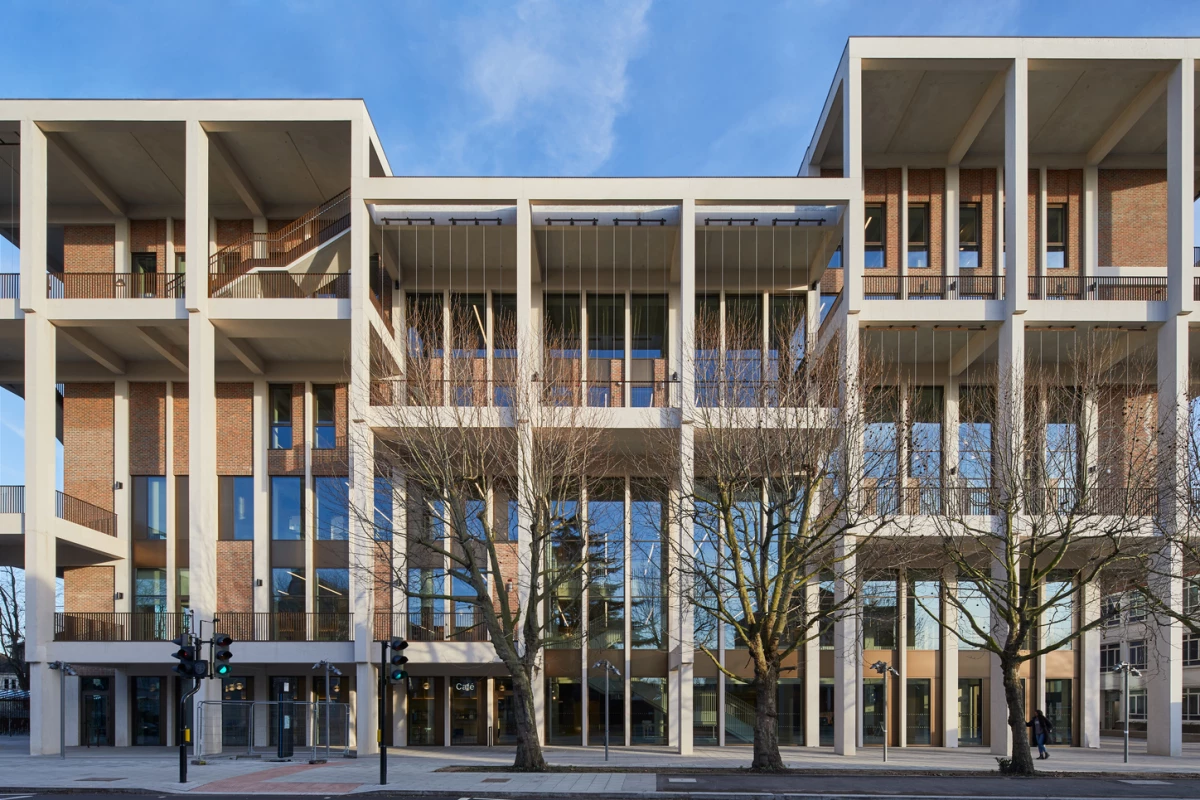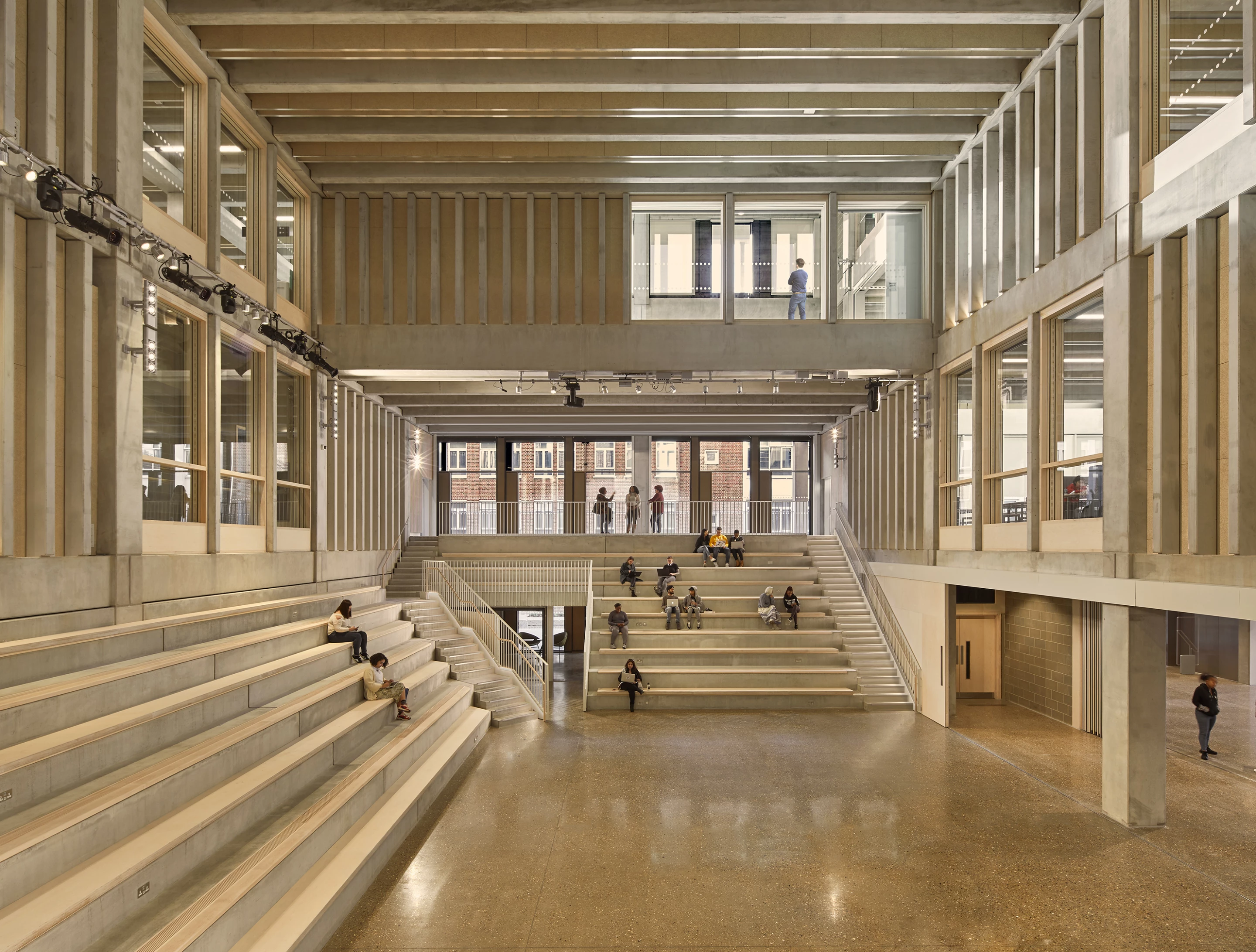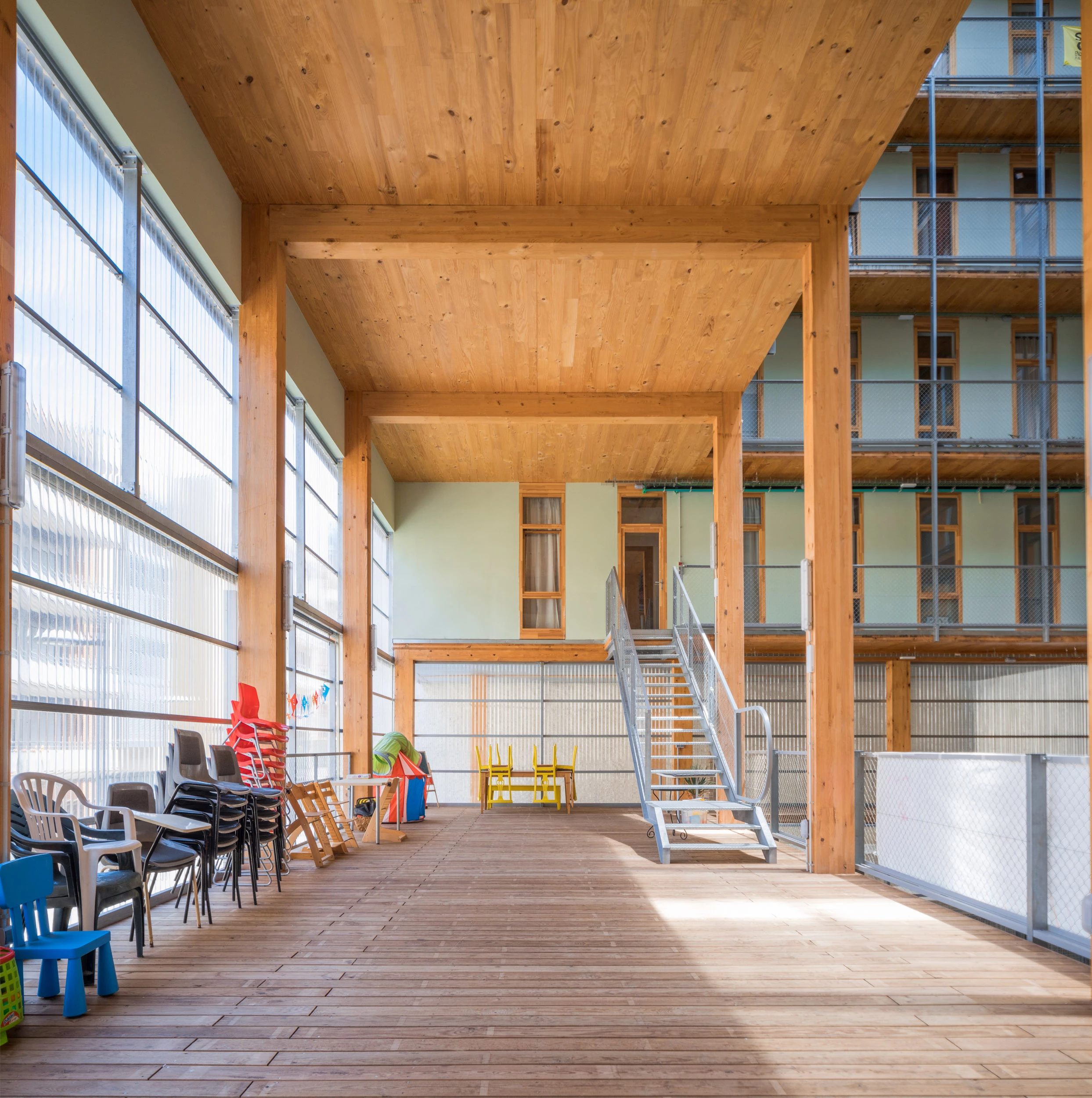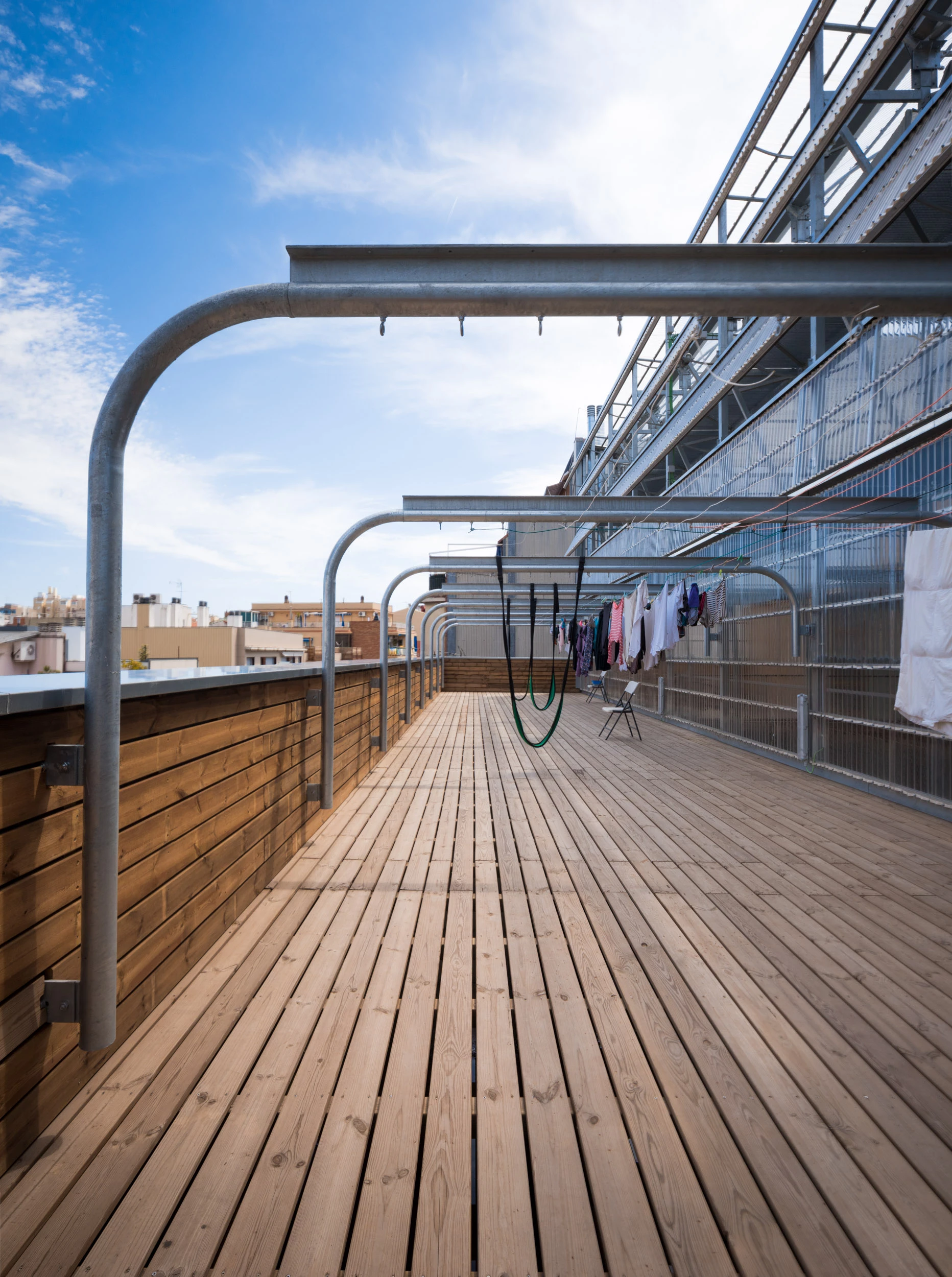Grafton Architects just can't seem to stop winning awards. Following its Pritzker Prize win in 2020 and Stirling Prize win in 2021, the Irish firm has now won the 2022 European Union Prize for Contemporary Architecture – Mies van der Rohe Award for its Town House university building. The studio was hailed as the winner alongside Spanish firm Lacol, which won the Emerging Architecture prize for its La Borda Cooperative Housing.
Named after the famous architect, the Mies van der Rohe Award is a prestigious biennial celebration of EU architecture that's been running since 1987. Previous winners include some of architecture's biggest names, such as Foster + Partners, Zaha Hadid, and Lacaton and Vassal.
Grafton's Town House, which is located in London and is part of Kingston University, represents the first time that a university has ever won the architecture prize since it was established. It's also the last time entries from the UK will be eligible for consideration due to its decision to leave the EU bloc in January 2020.
The building is defined by an exposed concrete frame that creates terraced areas and gardens, while generous glazing maximizes daylight inside. The decor is dominated by concrete and wood, and is centered around a large foyer on the ground floor with integrated seating areas. It has received the BREEAM Excellent green building standard for its energy efficiency and Grafton used passive strategies like natural ventilation, outstanding insulation, and high levels of air-tightness, to ensure the interior maintains a relatively steady temperature, mitigating cooling and heating costs. Additionally, solar panels on the roof reduce its grid-based electricity requirements.
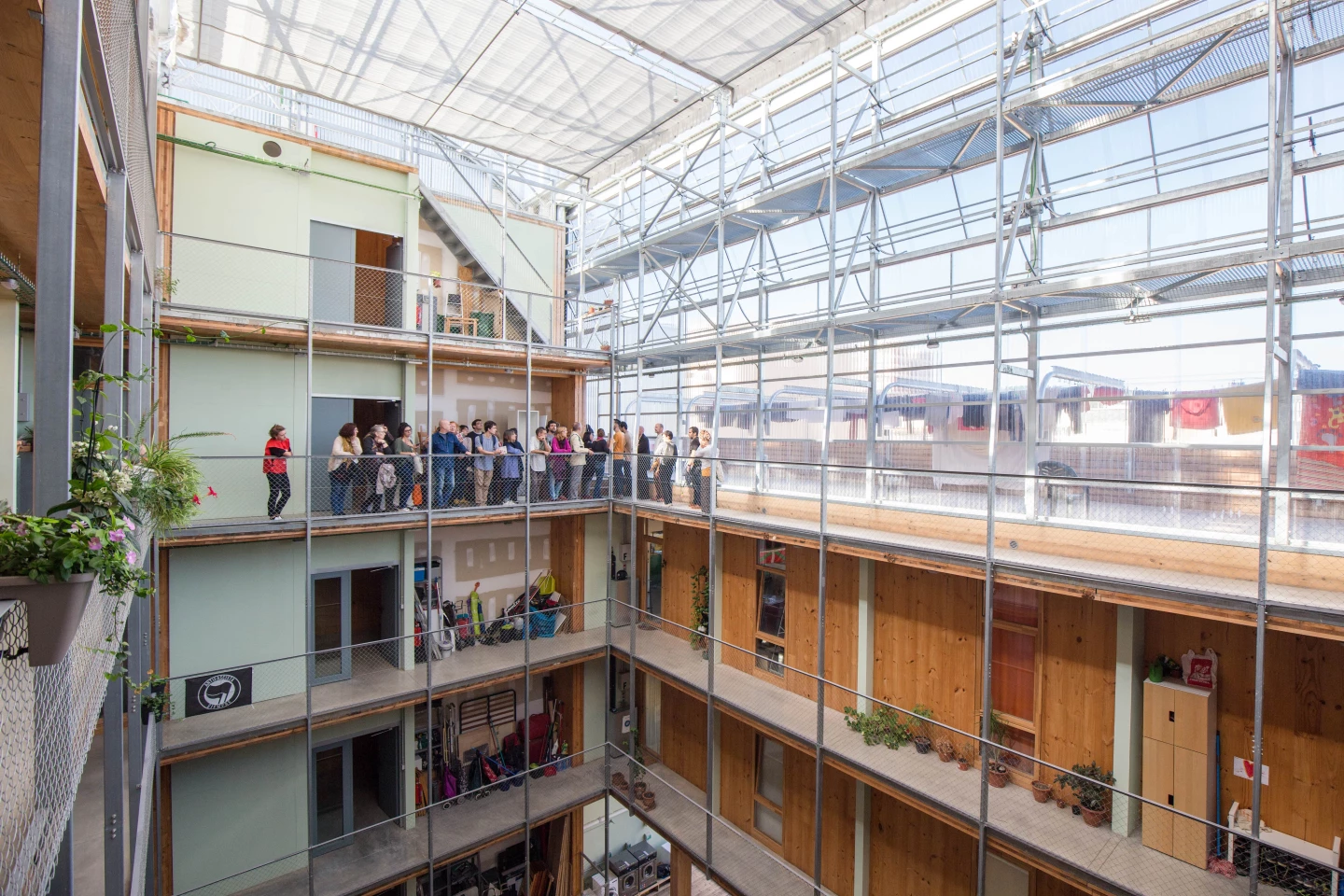
The winner of the Emerging Architecture prize, Lacol's La Borda Cooperative Housing, could hardly contrast more with Grafton's muscular concrete university. A cooperative residential building in Barcelona is funded by "ethical banks" and private donations, while a General Assembly run by members give those who qualify for social housing the right to live in their apartment indefinitely.
The building is largely constructed from wood, though does have a concrete base, and consists of 28 apartments arranged around a central courtyard. It's topped by a green roof and solar panels, which provide roughly one quarter of its electricity needs. Another notable feature is its "greenhouse" glazing, which works automatically: in hot weather it slides open to increase ventilation, with a nylon awning providing shade, while in colder weather it's closed and the shade removed to naturally warm the interior.
An awards ceremony for both winners will now take place on May 12 in Barcelona. Additionally, there will be a summary of all 532 nominees for this year's prize, as well as information on shortlisted projects.
Source: Mies van der Rohe Awards
